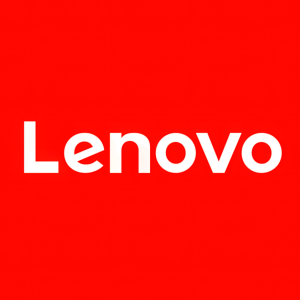Inaugural Lenovo Intelligent Transformation Index finds the biggest barrier to digital transformation across all industries is the lack of a skilled labor force
Lenovo has launched the inaugural Intelligent Transformation Index, a global benchmark of digital technology adoption, including big data, AI, and IoT. Developed by Economist Impact, the index reveals that Northern and Western Europe lead in adoption rates, with Denmark showing the highest at 27% for big data use. Despite the positive trends in intelligent transformation, challenges like a shortage of skilled labor hinder broader adoption. The report emphasizes the need for a skilled workforce and outlines the potential benefits of integrating new technologies to enhance business intelligence while keeping costs manageable in an uncertain economic environment.
- Launch of the Intelligent Transformation Index positions Lenovo as a leader in digital transformation insights.
- Denmark leads the index with 27% of businesses adopting big data.
- Integration of AI and IoT in Lenovo's manufacturing has improved output by 19%.
- The lack of skilled labor is slowing the adoption of digital technologies.
- Canada and Australia rank low in the index, indicating underperformance in technology adoption.
Insights
Analyzing...
Lenovo Launches Annual Intelligent Transformation Index to Explore the Global Adoption of Digital Intelligence

Lenovo Intelligent Transformation Index (Graphic: Business Wire)
Across all businesses, technology is transforming every aspect of an organization’s function, but it is technologies such as big data, artificial intelligence (AI), and the internet of things (IoT) that are driving a new paradigm of change – intelligent transformation – for better social and economic outcomes. However, the lack of skilled labor is slowing the speed of adoption.
The Intelligent Transformation Index
Lenovo’s Intelligent Transformation Index ranks market adoption of big data, AI, and IoT, based on published data from the
The highest of all the markets included in the index was
When looking at the adoption of big data, AI, and IoT, across industries, the ICT Services sector shows the highest overall level of adoption. Firms in the manufacturing and logistics industries show high adoption of IoT due to the use case of this specific technology in efficiency-driven supply chain intelligence. Knowledge industries such as professional, scientific, and technical services show more developed use cases for big data and AI.
The least “intelligent” sectors are accommodation, food service, and construction. In these industries, firms tend to be smaller or family-run businesses that lack the scale and resources to deploy the newer wave of technologies.
Where next for Intelligent Transformation?
While digital intelligence is still in its infancy, it is clear from Lenovo’s Intelligent Transformation Index that adoption is wide-scale and cross-industry. While building digital infrastructure can be relatively quick, the biggest barrier to adoption is the availability of a skilled labor force. Equipping employees with the necessary skills to adapt to increasingly data-driven and automated work processes will be a key challenge for organizations in the coming years.
Moving into 2023, companies across the world are focusing on controlling expenses in the face of an uncertain economy. Integrating big data, AI, and IoT as an out-of-the-box solution via the cloud can help support an organization’s goal towards intelligent transformation, helping increase affordability and lowing the barrier to adoption, while driving greater business intelligence.
“The Intelligent Transformation Index study is the first cross-country and -industry assessment of the factors driving the deployment of intelligent technologies at a global level. Countries looking to excel in digital intelligence need to possess the ‘trinity’ of talent, data, and infrastructure,” said
“There is also a need to focus on industries outside of the tech sector, as these typically tend to be the weakest link. Countries with the highest adoption rates are those where firms in more traditional sectors like retail and hospitality have also embraced the digital intelligence revolution,”
Lenovo’s Intelligent Transformation journey includes fully embracing Big Data, AI, and IoT across its 30+ manufacturing sites to build a resilient supply chain. At Lenovo’s LCFC factory in
At this year’s
Read the whitepaper in full here.
About Lenovo
Lenovo (HKSE: 992) (ADR: LNVGY) is a
View source version on businesswire.com: https://www.businesswire.com/news/home/20230223005594/en/
jortega2@lenovo.com
Source: Lenovo







